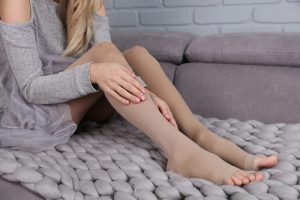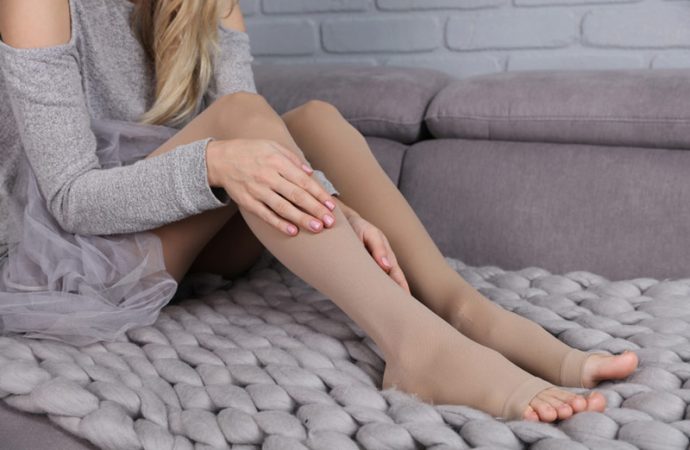Introduction Varicose veins are a common condition characterized by swollen, twisted veins, usually in the legs. They often cause discomfort, pain, and aching, and in severe cases, they can lead to more serious health problems. Dr. Pooja Nagdev, an expert in holistic healing, guides us through natural remedies to manage varicose veins and alleviate associated
Introduction
Varicose veins are a common condition characterized by swollen, twisted veins, usually in the legs. They often cause discomfort, pain, and aching, and in severe cases, they can lead to more serious health problems. Dr. Pooja Nagdev, an expert in holistic healing, guides us through natural remedies to manage varicose veins and alleviate associated discomfort. These remedies can be easily implemented at home and have the potential to prevent the worsening of varicose veins while promoting better circulation.
Understanding Varicose Veins: A Comprehensive Overview
Definition and Causes
Varicose veins are enlarged, twisted veins that usually occur in the legs. They form when the valves in the veins do not function properly, causing blood to pool in the veins instead of flowing towards the heart. The weakened veins then become enlarged and swollen.
Several factors contribute to the development of varicose veins, including:
- Age: The risk of developing varicose veins increases with age.
- Genetics: If varicose veins run in your family, you’re more likely to develop them.
- Pregnancy: Pregnant women are more susceptible due to the increased pressure on the veins in the pelvic area.
- Prolonged Standing or Sitting: Jobs that involve long periods of standing or sitting can increase the risk.
- Obesity: Being overweight puts additional pressure on the veins in your legs.

Image by: https://www.yourveincarecenter.com/the-best-home-remedies-for-varicose-veins/
Identifying Symptoms and Risk Factors
Common symptoms of varicose veins include:
- Visible, swollen veins: Typically dark purple or blue in color.
- Aching or throbbing pain: Especially after extended periods of standing.
- Heaviness or discomfort: Often worsened by prolonged sitting or standing.
- Itching around the veins: Accompanied by skin discoloration.
Risk factors for developing varicose veins include age, gender (women are more likely to develop them), family history, and obesity.
Lifestyle Changes: A Holistic Approach to Varicose Vein Management
Exercise and Its Importance
Regular exercise is a fundamental lifestyle change that can significantly impact varicose vein management. Exercise helps improve blood circulation and strengthen the muscles in your legs. Activities like walking, cycling, swimming, and leg exercises can aid in reducing the symptoms of varicose veins.
Maintaining a Healthy Weight
Maintaining a healthy weight is crucial in managing varicose veins. Excess weight puts added pressure on the veins, making it harder for blood to circulate properly. By maintaining a healthy weight through a balanced diet and regular exercise, you can alleviate strain on your veins and reduce the risk of varicose veins.
Elevating Legs and Avoiding Prolonged Standing
Elevating your legs above the level of your heart can help reduce swelling and improve blood flow. Whenever possible, prop your legs up with a pillow or sit in a reclining chair. Additionally, avoiding prolonged periods of standing and taking breaks to walk or stretch can prevent the worsening of varicose veins.
Natural Remedies for Varicose Veins: A Healing Touch
Compression Stockings
Compression stockings provide gentle pressure to the legs, aiding in improving circulation. They can help reduce swelling and discomfort associated with varicose veins. It’s advisable to wear them during the day, especially if you have to stand or sit for extended periods.
Herbal Supplements and Remedies
Certain herbal supplements, such as horse chestnut extract and grape seed extract, have shown promise in reducing symptoms of varicose veins. These supplements can support vein health and improve blood circulation. However, it’s essential to consult a healthcare professional before using any herbal remedies.
Aloe Vera and Apple Cider Vinegar
Aloe vera and apple cider vinegar are known for their anti-inflammatory properties. Applying aloe vera gel or apple cider vinegar directly to the affected areas may provide relief from pain and reduce inflammation associated with varicose veins.
Dietary Adjustments for Varicose Vein Relief
Foods Rich in Flavonoids
Flavonoids are compounds found in various fruits and vegetables that can help strengthen blood vessels and improve circulation. Incorporate foods like citrus fruits, berries, onions, and bell peppers into your diet to benefit from their flavonoid content.
Incorporating Fiber into the Diet
A diet high in fiber can help prevent constipation, which can contribute to varicose veins. Fiber-rich foods include whole grains, fruits, vegetables, and legumes. Adequate fiber intake ensures smooth bowel movements, reducing the pressure on veins in the lower body.
Essential Oils and Massages: Soothing the Veins
Cypress Oil
Cypress essential oil is known for its ability to improve circulation and strengthen blood vessels. When diluted, it can be massaged onto the affected areas to promote better blood flow and reduce the symptoms of varicose veins.
Massaging Techniques
Gentle massages can help improve circulation and alleviate discomfort caused by varicose veins. Use upward strokes, applying light pressure, to stimulate blood flow towards the heart. Massaging with essential oils like cypress or diluted apple cider vinegar can enhance the effectiveness of the massage.
Conclusion
Dr. Pooja Nagdev has shed light on natural ways to combat varicose veins, emphasizing the significance of lifestyle changes, natural remedies, dietary adjustments, and soothing practices. By incorporating these natural approaches into your daily routine, you can alleviate discomfort, promote better circulation, and potentially prevent the worsening of varicose veins. Let us embrace these natural remedies and take proactive steps towards managing varicose veins, enhancing our overall well-being, and enjoying a higher quality of life.

















Leave a Comment
Your email address will not be published. Required fields are marked with *